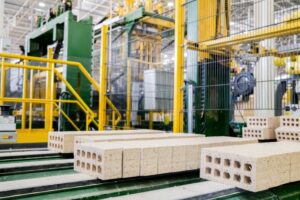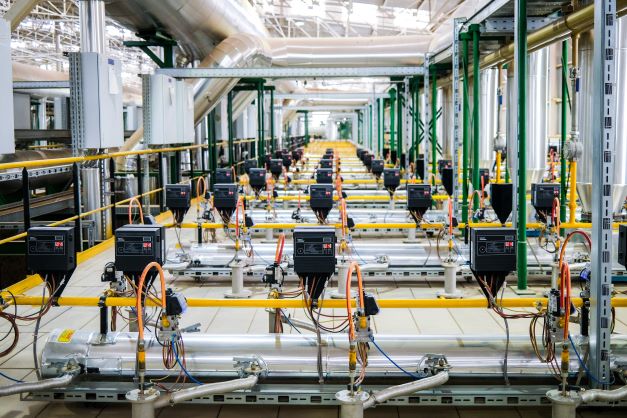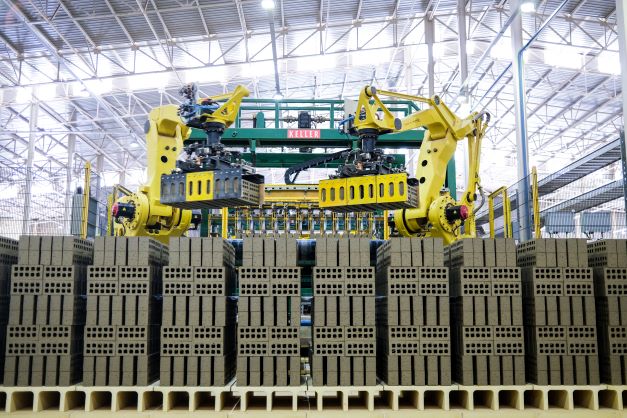The commitment made by Corobrik at the South African Investment Conference at Sandton in 2019 has paid off handsomely, with its new Kwastina factory in Driefontein entering full production by the end of March.
The R800 million investment in the state-of-the-art manufacturing facility has gone hand in hand with a further R200 million earmarked to expand Corobrik’s concrete operations in KwaZulu-Natal. “Kwastina produces clay face bricks, while the concrete operation is targeted at the plaster brick and block market,” explains CEO Nick Booth. Kwastina (‘Home of the Brick’) is fully automated, from mixing the raw materials to the end product. Capable of producing 100 million bricks a year, the new factory will easily be able to meet larger-volume orders. In a first for the South African market, Kwastina will also have the flexibility to produce small quantities of bespoke products for the architectural segment. “What makes this factory so exciting is that it allows us to compete anywhere in Southern Africa, landing product in regions traditionally not in Driefontein’s market as the new factory is more cost-effective,” says Booth. Touted as the most technologically advanced and environment friendly brick-manufacturing plant in Africa, Kwastina is testament to Corobrik’s commitment to constantly innovate. “It is an acknowledgement on our part that we need to progress and make those step changes that will keep us relevant for the next 100 years,” says Booth.The project was completed on budget, despite a three-month delay due to the Covid-19 hard lockdown in 2020.
“We believe we invested at the bottom of the cycle. All things being equal, if the government rolls out what it plans to, in terms of infrastructure like clinics, hospitals, police stations and schools, then Kwastina is ideally placed to make those projects more cost-effective and efficient. It is going to give us an advantage in the market, not just in terms of technology, but also in quality and consistency, which are critical for specifications involving tight tolerances,” says Booth. Corobrik is already hard at work extending its product range, with a number of new products being introduced already. Current trials are being carried out with brick glazing for bespoke projects, as well as the clay raw material to produce different colours to give Kwastina a unique footprint in the country. Booth concludes that the commissioning process went smoothly, with no major hiccups in the process. “It was a privilege to see Kwastina through to fruition.” He ascribes the success of the project to detailed planning and the fact that tried-and-tested technology has been used, mainly imported from German suppliers.







